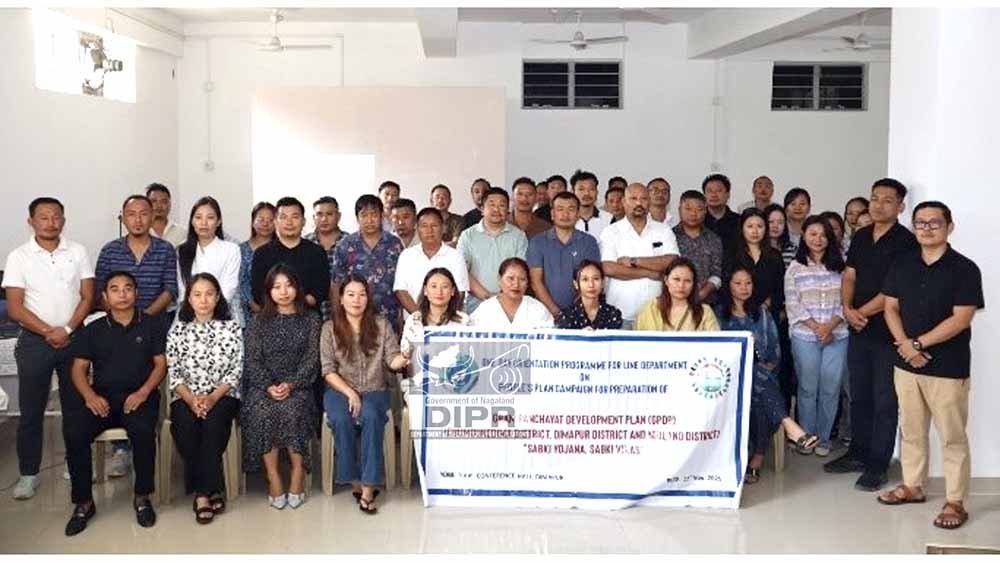A critical training programme for officials of line departments and block-level functionaries under the Revamped Rashtriya Gram Swaraj Abhiyan (RGSA) was held on November 12 at Tulip Conference Hall, Duncan Basti, Dimapur. The programme was organized by the State Institute of Rural Development (SIRD), Nagaland, as part of the ongoing implementation and data collection initiative for Panchayat Advancement Index (PAI 2.0) in Dimapur, Niuland and Chümoukedima districts.
According to DIPR report, the training was attended by District Heads of concerned departments and two officials from each block office. The objective was to familiarize participants with the PAI 2.0 framework, data entry protocols, validation procedures and timelines to ensure accuracy and consistency across departments.
Project Director Dimapur, Limameren Yaden, in his inaugural address, welcomed the participants and emphasized the importance of PAI 2.0 as a scientific tool for bottom-up planning. He urged officials to be sincere in understanding the methodology to ensure effective implementation in their respective districts.
Consultant RGSA, Risuhli Rhakho, explained that PAI is a village-level assessment index designed to measure progress across nine Local Sustainable Development Goals (LSDGs): Poverty-Free & Enhanced Livelihood Panchayat; Healthy Panchayat; Child-Friendly Panchayat; Water-Sufficient Panchayat; Clean & Green Panchayat; Self-Sufficient Infrastructure Panchayat; Socially Just & Secured Panchayat; Panchayat with Good Governance; and Women-Friendly Panchayat.
She informed that data will be submitted by VDB Secretaries, validated at block and district levels, and finally assessed by the Ministry of Panchayati Raj for scoring. PAI comprises 150 indicators and 178 unique data points, with 58 auto-ported from departmental websites, compiled under the Local Indicator Framework (LIF).
Rhakho also highlighted that PAI scores will be used for the National Panchayat Award 2025, and the scorecard will be available on the PAI portal to help villages identify areas for improvement.
Resource persons Vepo Keyho and Risuhli Rhakho also presented sessions on data collection, validation processes and the roadmap for PAI 2.0 via the Panchayat Nirnay App.
Nagaland Training on PAI 2.0 held for Dimapur, Niuland and Chümou
DIMAPUR

